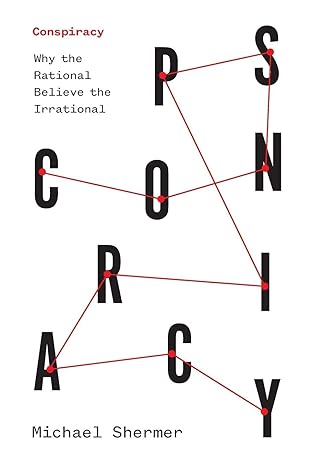Conspiracy
why the rational believe the irrational
- ISBN: 9781421449074
- Editorial: The Johns Hopkins University Press
- Fecha de la edición: 2024
- Lugar de la edición: Baltimore. Estados Unidos de Norteamérica
- Encuadernación: Rústica
- Medidas: 24 cm
- Nº Pág.: 376
- Idiomas: Inglés

Nothing happens by accident, everything is connected, and there are no coincidences: that is the essence of conspiratorial thinking. Long a fringe part of the American political landscape, conspiracy theories are now mainstream: 147 members of Congress voted in favor of objections to the 2020 presidential election based on an unproven theory about a rigged electoral process promoted by the mysterious group QAnon. But this is only the latest example in a long history of ideas that include the satanic panics of the 1980s, the New World Order and Vatican conspiracy theories, fears about fluoridated water, speculations about President John F. Kennedy's assassination, and the notions that the Sandy Hook massacre was a false-flag operation and 9/11 was an inside job.
In Conspiracy, Michael Shermer presents an overarching review of conspiracy theories-who believes them and why, which ones are real, and what we should do about them. Trust in conspiracy theories, he writes, cuts across gender, age, race, income, education level, occupational status-and even political affiliation. One reason that people believe these conspiracies, Shermer argues, is that enough of them are real that we should be constructively conspiratorial: elections have been rigged (LBJ's 1948 Senate race); medical professionals have intentionally harmed patients in their care (Tuskegee); your government does lie to you (Watergate, Iran-Contra, and Afghanistan); and, tragically, some adults do conspire to sexually abuse children. But Shermer reveals that other factors are also in play: anxiety and a sense of loss of control play a role in conspiratorial cognition patterns, as do certain personality traits.
This engaging book will be an important read for anyone concerned about the future direction of American politics, as well as anyone who's watched friends or family fall into patterns of conspiratorial thinking.
Apologia
Prologue. The Conspiracy Effect: Why Smart People Believe Blatantly Wrong Things for Apparently Rational Reasons
Part I. Why People Believe Conspiracy Theories
Chapter 1. Conspiracies and Conspiracy Theories: The Difference in Thinking and the Difference It Makes
Chapter 2. A Brief History of Conspiracy Theories and Conspiracists: Toward a Science of Conspiracism
Chapter 3. Proxy and Tribal Conspiracism: How Conspiratorial Beliefs Are Reinforced as Truths
Chapter 4. Constructive Conspiracism: Paranoia, Pessimism, and the Evolutionary Origins of Conspiracy Cognition
Chapter 5. A Case Study in Conspiracism: The Sovereign Citizens Conspiracy Theory
Part II. How to Determine Which Conspiracy Theories Are Real
Chapter 6. The Conspiracy Detection Kit: How to Tell If a Conspiracy Theory Is True or False
Chapter 7. Truthers and Birthers: The 9/11 and Obama Conspiracy Theories
Chapter 8. JFK Blown Away: The Mother of All Conspiracy Theories
Chapter 9. Real Conspiracies: What If They Really Are Out to Get You?
Chapter 10. The Deadliest Conspiracy in History: The Trigger of World War I and How Conspiracies Really Work
Chapter 11. Real and Imagined Enemies: Conspiracies in Reality and in Our Imaginations
Part III. Talking to Conspiracists and Rebuilding Trust in Truth
Chapter 12. How to Talk to Conspiracy Theorists: Engaging with People with Whom We Disagree
Chapter 13. How to Rebuild Trust in Truth: Reason, Rationality, and Empiricism in Reality-Based Communities
Coda. What People Believe About Conspiracy Theories and Why: Results of the Skeptic Research Center Survey
Acknowledgments
Notes
Index









